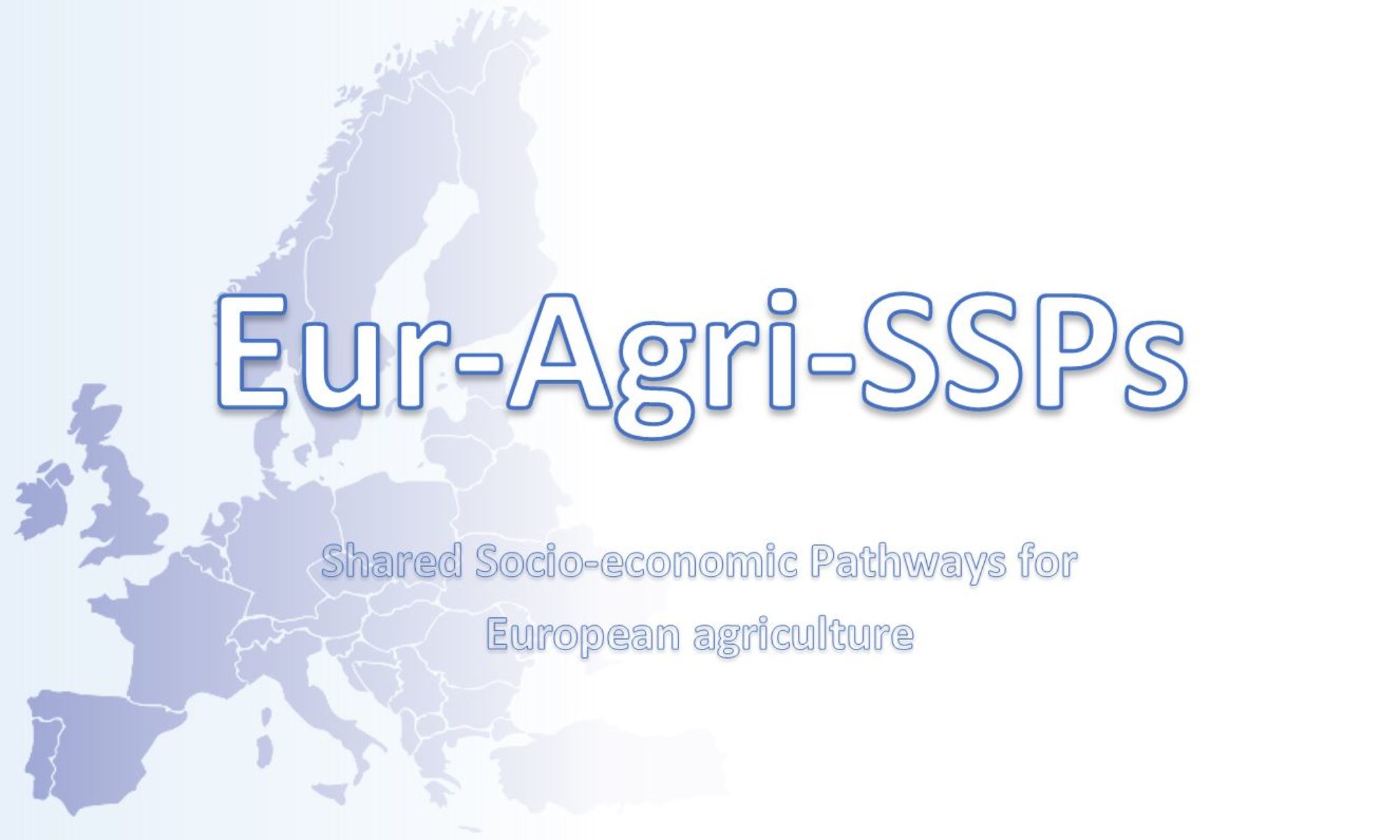Problem statement
Agricultural research frequently requires storylines to define future developments of socio-economic conditions. A set of qualitative storylines, known as the Shared Socio-economic Pathways (SSPs), is available to inform global research. The SSPs qualitatively describe five contrasting socio-economic pathways into the future. They are organized along two gradients of socio-economic challenges for climate change mitigation and adaptation. Their spatial resolution and scope need to be extended for sectoral studies in agriculture at European, national and regional scales.
Objectives
The Eur-Agri-SSPs aim at summarizing how the agricultural and related sectors may evolve until 2050 in Europe given the inherent uncertainties about the future. The storylines shall support scientific (e.g. quantitative modelling, qualitative scenario studies) and applied (e.g. policy planning) applications that consider future agricultural sector conditions. The Eur-Agri-SSPs are not constrained to climate change but are transferable and applicabel to other issues.
Procedure
The Eur-Agri-SSPs are based on the SSPs and have been translated from global to European scales and enriched with a sectoral perspective in a consecutive, nested, participatory, iterative approach following a protocol with nine steps. The steps include the definition and prioritization of storyline elements, the drafting, reviewing and finally dissemination of storylines. For details, please visit Research process.
About this homepage
This homepage is part of the dissemination of research results. It presents the major process steps and the storylines and summarizes feedback on both process and outcome. The section Publications provides access to the major research results presented at scientific conferences and in the scientific literature. Applications links to research and other projects and initiatives that apply the Eur-Agri-SSPs. Partners links to a description of the research partners involved in developing the Eur-Agri-SSPs. This initiative emerged from the MACSUR project.
Please contact us in case of any question or comment.
